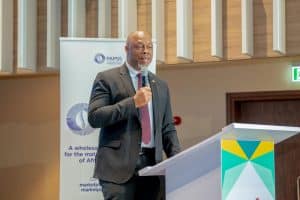
Inspiring Investor Confidence: Exploring Cross-Border Litigation on Trade Matters for the Success of AfCFTA Intra-African Trade
Gaps in Cross-Border Litigations
The signing of the African Continental Free Trade (AfCFTA) agreement saw member states adopt an investment protocol for the protection of foreign investments within host nations. The Investment Protocol outlines efficient dispute resolution in the event of investor-state disputes as one of its four priority objectives. This provides a resource in investor-state arbitration with negotiations likely to establish a mechanism for international court or domestic court approaches to solving conflicts.
While the protocol provides initial steps such as consultation and negotiations, questions have emerged on the possibility of a mechanism to automatically enforce the guarantees under the protocol for the benefit of intra-African trade. Notably, dispute settlement mechanisms set up by the AfCFTA have created room for the espousal of investor claims by their home nations which is yet to be explored. However, considering that African nations lack a culture of litigating each other on trade matters, questions on the effectiveness of the dispute mechanisms set up in the protocol continue to emerge.
Embracing nation-to-nation litigation on trade matters within the continent can therefore serve as a catalyst in inspiring investor confidence in the AfCFTA. This can consequently increase trade and sustainable economic development and its therefore a matter of agency for nations to consider developing mechanisms to inspire investor confidence.
Capacity Building for Nation-to-Nation Trade Litigation
Africa needs to overcome the culture of non-litigation between nations to provide investors with an option to espouse dispute claims through their home states in the event of conflicts. There have been limited litigations with nations hesitant to litigate trade disputes against each other in Africa which has perpetuated a culture unideal for dispute resolutions. However, with the promise of the AfCFTA, fostering confidence through a culture of transparency and fairness in domestic courts is a critical step in ensuring effective conflict resolution. Under the AfCFTA secretariat, there is a need for an emphasis on encouraging African nations to embrace the idea of nation-to-nation litigation to give investors a fighting chance when disputes emerge. The involvement of parent countries in foreign direct investments can ensure that trade disputes are resolved impartially effectively driving investor confidence with assured home country protection and involvement. While this would require the establishment of more elaborate rules and regulations, a cultural shift among nations would ensure investors of a level playing field and the availability of reliable mechanisms for conflict resolution driving increased investor confidence.
African nations can leverage successful precedents and best practices in cross-border trade litigations as a learning curve and guidance framework for developing internal African mechanisms. There is a need to focus on drawing lessons from failures and successful practices from other rational trade agreements and international trade bodies to shape Africa’s own approach. The AfCFTA and individual member nations can study and adapt mechanisms used in the past by entities such as the World Trade Organization (WTO). Other sources of inspiration can include regional trade blocs such as the European Union in informing the establishment of an effective cross-border litigation framework within the AfCFTA to drive investment confidence within the continent. An emphasis should, however, be made on the need to learn from these experiences and only adapt tailored elements to the specific needs and dynamics of African nations, challenges, and the investment protocol specifications. This will create a strong foundation for investor confidence and enhance the realization of AfCFTA trade potential by dealing with investor-state disputes effectively and conclusively.
Human resource capacity and strong legal institutions play a significant role in enhancing litigation effectiveness domestically or internationally. Thus, Africa has to consider dedicating efforts and resources towards strengthening existing legal institutions and building capacity to create a basis for justifying nation-to-nation trade dispute resolution. For Instance, AfCFTA member states in the East African region can benefit from the East African Court of Justice (EACJ) which is mandated to resolve disputes between the regional block and its member states. However, strengthening these institutions is necessary to enhance their legitimacy and capacity, including state funding to deal with trade disputes and challenges impartially even with the involvement of member states and individual investors. The strengthening and capacity-building approach calls for providing judges, lawyers, and other stakeholders with training to ensure that the necessary expertise in international trade law is available.
It is also suitable that the AfCFTA and member nations consider establishing specialized trade courts, panels, and tribunals to provide a more streamlined approach to resolving trade disputes and in supporting domestic and regional courts. These dedicated forums designed to handle trade-related matters can ensure that disputes are addressed promptly and efficiently enhancing trade continuity among nations. This creates the capacity for free trade areas to develop the required experience in trade law, procedures, and customers allowing nations to navigate trade issues with ease thus stimulating business continuity. Effectively, this measure can drive nations and investors to streamline dispute resolutions while minimizing costs and delays thus promoting increased confidence in the AfCFTA implementation and commitment of member nations.
The development of this mechanism would undoubtedly lead to the development of consistencies and precedence required to build confidence and trust in cross-border litigation effectively establishing a culture for the benefit of intra-African trade under the AfCFTA. With standardized and harmonized rulings, predictability, and uniformity can be enhanced in the interpretation and application of trade law regulations and precedence. Consistent decisions and the creation of continent-wide binding precedents can provide increased clarity for investors, businesses, governments, and other stakeholders informing their conduct and inspiring confidence in the AfCFTA and its promise.
Muoki Musila is an Kenyan based economist. These are the writer’s own opinions and do not necessarily reflect the viewpoints of Liberty Sparks. Do you want to publish in this space? Contact our editors at [email protected] for further clarification.



